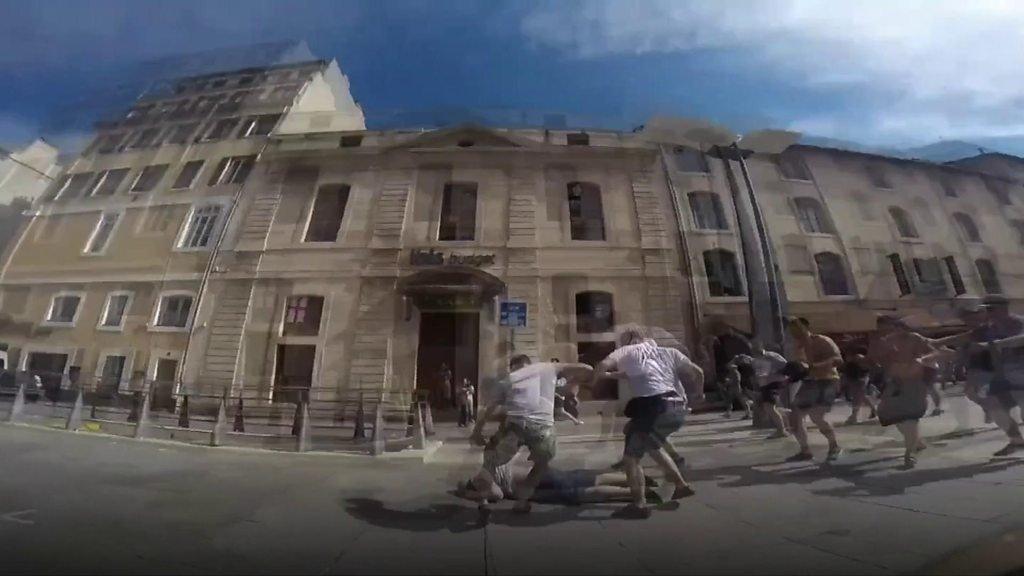World Cup 2018: Russia gives hooliganism assurances
- Published
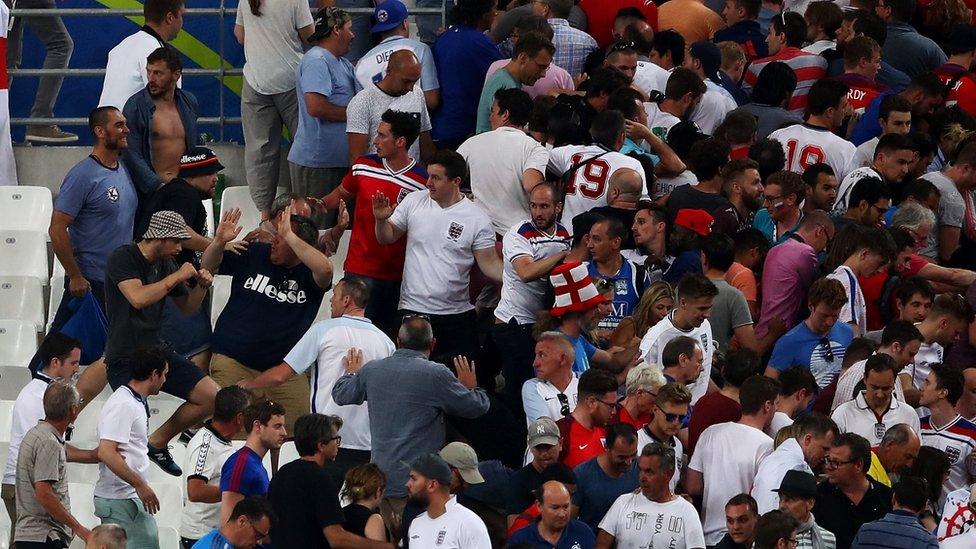
England fans were targeted by Russian supporters at a Euro 2016 match in Marseilles
Russian authorities have given their "assurance" fans will be safe from violence at the World Cup finals.
Officials have a "blacklist" of known hooligans and have banned anyone responsible for trouble at Euro 2016 from attending, the Foreign Affairs Committee heard.
Foreign Office minister Harriett Baldwin was responding to concerns of other MPs.
About 10,000 England fans are expected to travel to Russia in June.
There were violent clashes when Russian fans charged England supporters in the stadium when the two countries played each other in Marseille at Euro 2016.
Trouble was also reported in the city's streets between England, Russia and France fans.
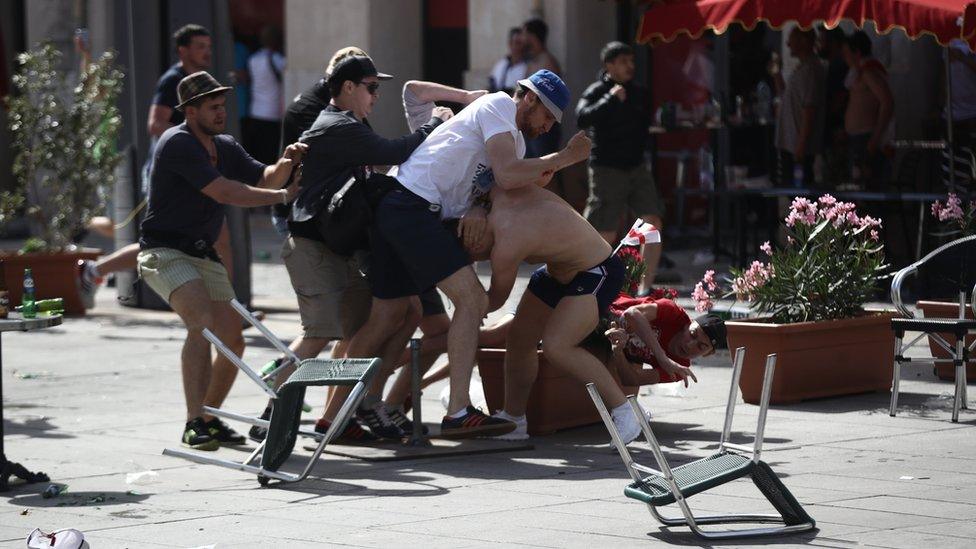
Fights involving football fans also broke out in the streets of Marseille
Ms Baldwin told the committee that Russia was "responsible" for running a safe World Cup in June and had given its "assurances" to Fifa and the UK government.
She said the threat of hooliganism had been a focus of two years of planning ahead of the event.
The deployment of police officers who will be based in the country during the tournament was "at least as large as any other country" and co-operation with Russian authorities was "strong", Ms Baldwin said.
Conservative MP Priti Patel questioned the minister about whether she was concerned there would be a repeat of the violence against England fans in Marseille.
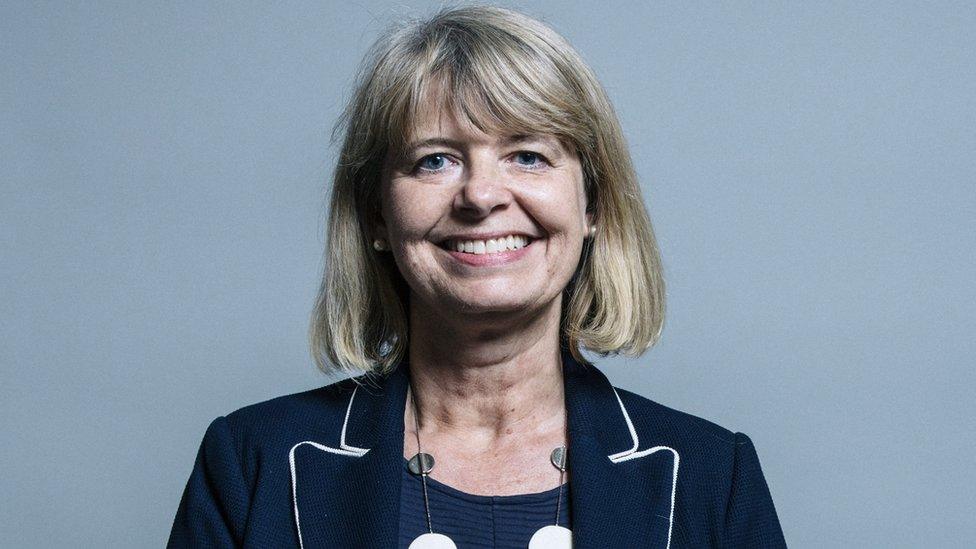
Harriet Baldwin said she had been given "assurances" by Russian officials
Ms Baldwin said it had been a "specific focus" of authorities and she welcomed the banning of hooligans.
She said: "I think this is an area where the police co-operation has been extensive but clearly as with any football event this is a risk that does need to be closely worked on and the risk of violence needs to be mitigated."
Asked if there were particular groups England fans should be aware of, Ms Baldwin said there is a "blacklist of known troublemakers" numbering about 1,800 people.
The committee also heard that a "mobile embassy" will tour the cities hosting England games to assist fans.
'LGBT advice'
She said the Foreign Office's preparations had been affected by the expulsion of 23 UK diplomats from Russia in the wake of the poisoning of Sergei Skripal and his daughter Yulia in Salisbury in March.
But Ms Baldwin said her department had adapted to meet the challenge.
Committee chairman Tom Tugendhat questioned the advice that fans from LGBT communities should exercise caution, and he suggested they could not rely on the assurances that Russian police would protect them.
He said: "We are not talking about fans being a little bit cautious, we're talking about fans realising that the police force there may not be on their side.
"That the law enforcement authorities may actually be working against them and that the state that they would expect to turn to in terms of protection may be the organisation that is going to repress them the harshest."
Ms Baldwin said she "accepts" Mr Tugendhat's comments but there had been "assurances".
She urged fans to check the Foreign Office's dedicated website, external as well as the general travel advice for Russia before making their decision whether to travel.
- Attribution
- Published15 August 2017
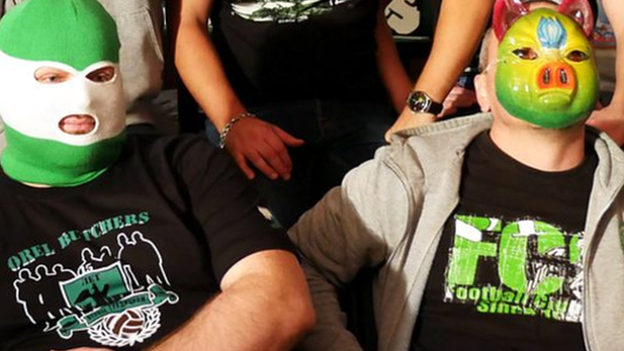
- Attribution
- Published18 April 2018
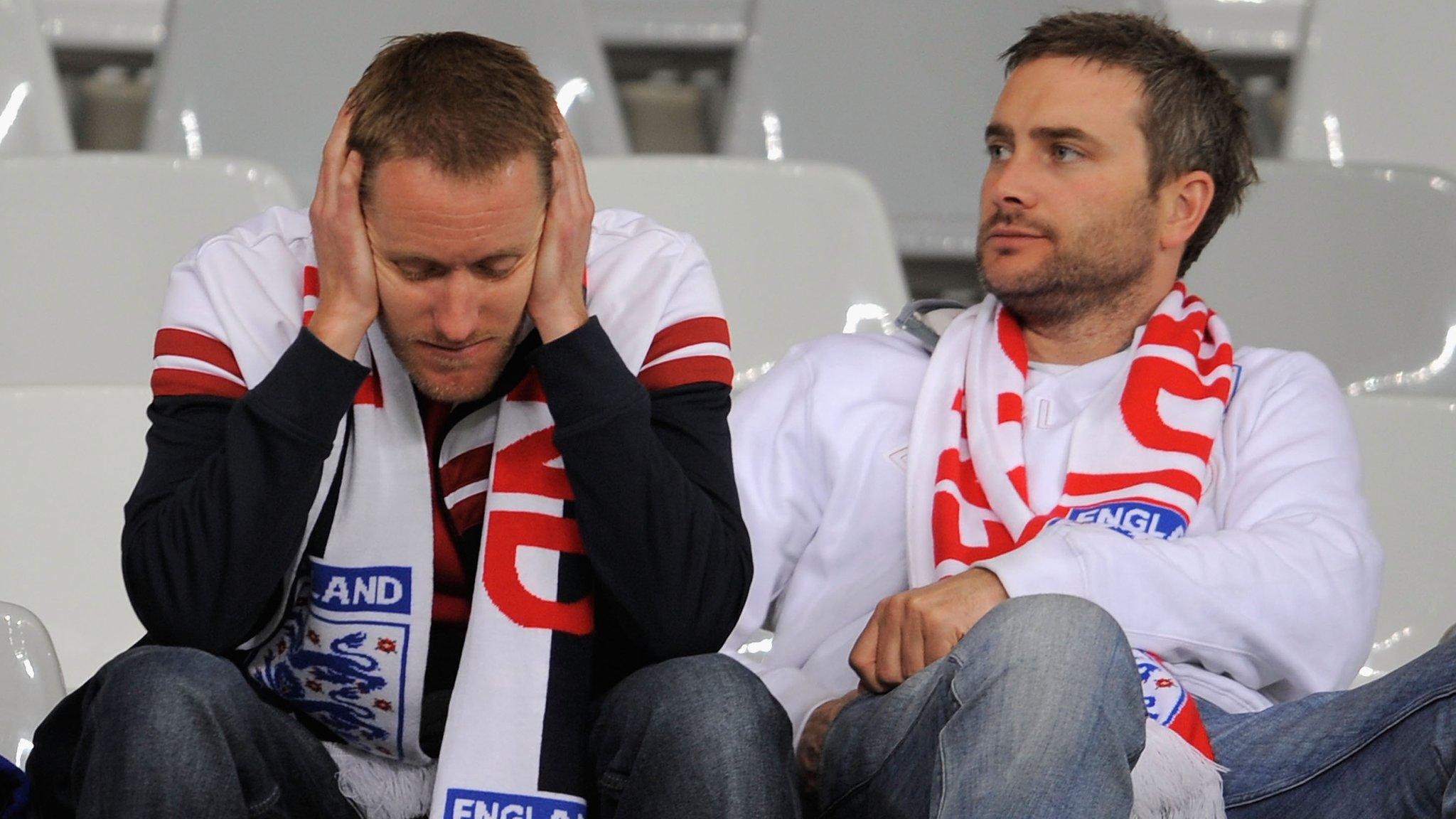
- Published14 June 2016
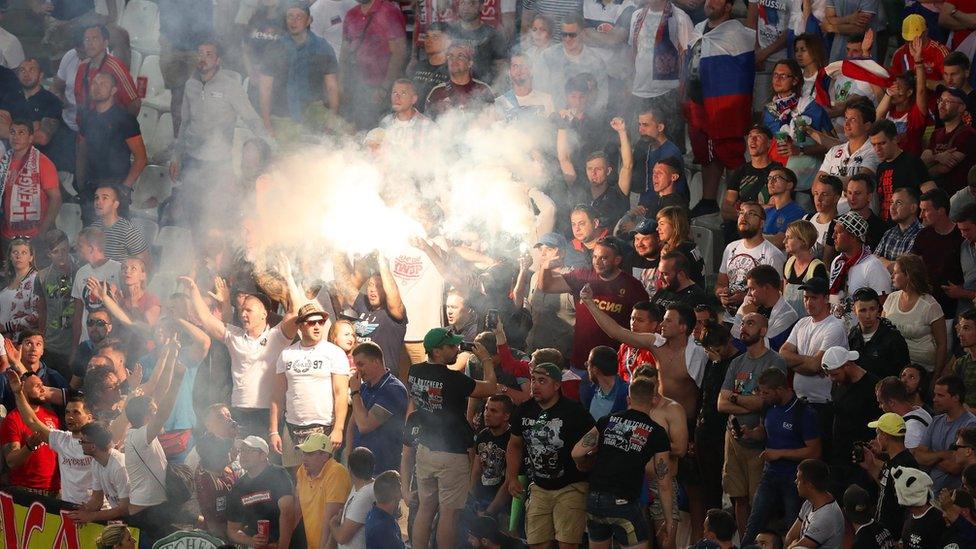
- Published10 March 2017
